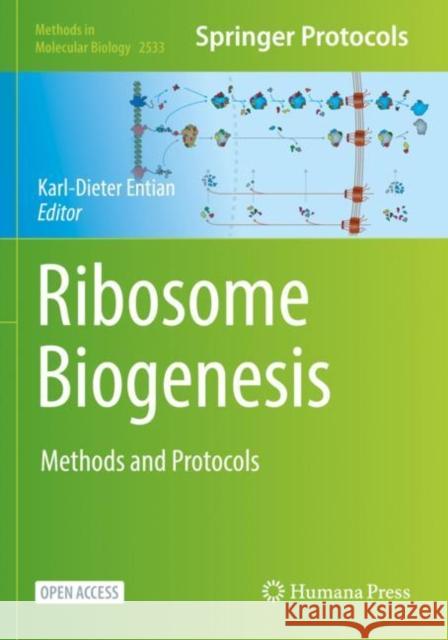Ribosome Biogenesis: Methods and Protocols » książka
topmenu
Ribosome Biogenesis: Methods and Protocols
ISBN-13: 9781071625033 / Angielski / Miękka / 2022
Ribosome Biogenesis: Methods and Protocols
ISBN-13: 9781071625033 / Angielski / Miękka / 2022
cena 161,36
(netto: 153,68 VAT: 5%)
Najniższa cena z 30 dni: 154,18
(netto: 153,68 VAT: 5%)
Najniższa cena z 30 dni: 154,18
Termin realizacji zamówienia:
ok. 16-18 dni roboczych.
ok. 16-18 dni roboczych.
Darmowa dostawa!
This Open Access volume provides comprehensive reviews and describes the latest techniques to study eukaryotic ribosome biogenesis. For more than 50 years ribosomes are a major research topic. Our knowledge about ribosome biogenesis and function such as transcription, mRNA modification, and translation was the sine qua non for developing the powerful RNA-based vaccines against RNA-viruses causing the world-threatening Covid-19 pandemia. The chapters in this book are organized into six parts. Part One discusses a comparative survey about the unity and diversity of ribosome biogenesis in pro- and eukaryotic cells. Part Two deals with the genomic organization of eukaryotic rDNA and the role of RNA polymerase I in ribosomal RNA transcription. Part Three explores in vitro methods to study RNA polymerase I structure and its function, and Part Four analyzes the nucleo-cytoplasmic transport of assembled ribosomes and RNP complexes. Part Five covers modifications that increase the complexity of rRNAs, and Part Six provides readers with a review of eukaryotic translation and - for the first time - describes a new method to analyze translation in vitro. Written in the highly successful Methods in Molecular Biology series format, chapters include introductions to their respective topics, lists of the necessary materials and reagents, step-by-step, readily reproducible laboratory protocols, and tips on troubleshooting and avoiding known pitfalls.
Cutting-edge and comprehensive, Ribosome Biogenesis: Methods and Protocols is a valuable resource for scientists and researchers interested in learning more about the increasing importance of in vitro RNA-technologies.











